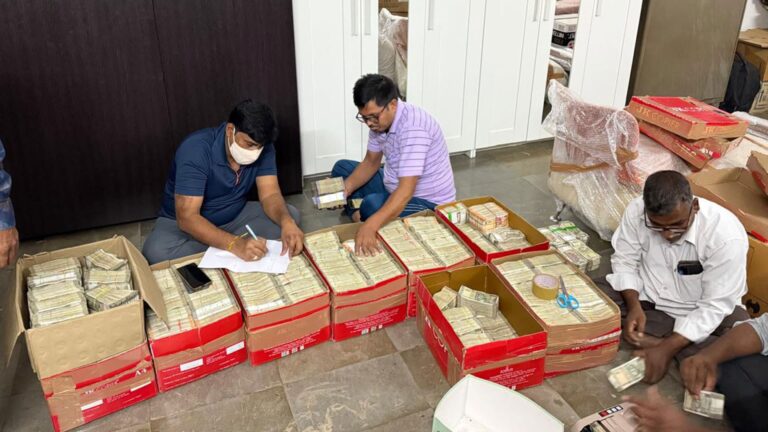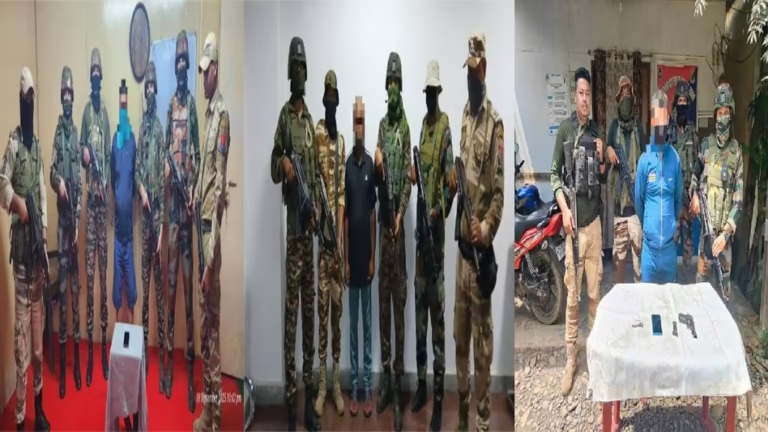Manipur: Errant UPPK cadres flee camp with weapons, public warned against support
Some cadres of the United People’s Party of Kangleipak (UPPK)—including General Secretary N. Ahed alias Lemba and several top leaders—escaped a ceasefire camp at Yaithibi Loukon, Kakching district, on July 4, 2025, taking weapons with them. UPPK Chairman Konthoujam Homeshwar urged the public not to support these errant members or any monetary demands, and instead report them to law enforcement. UPPK, a breakaway faction of PREPAK, signed a ceasefire MOU with the government in 2013 and formally dissolved in 2016
1. Introduction: A Sudden Break from Peace
Imagine trusting someone, only to find they’ve walked away with your keys—and your home. That’s exactly what happened recently in Manipur’s fragile peace scenario. A group of UPPK cadres, settled in a ceasefire camp as part of ongoing dialogue, bolted abruptly—carrying weapons along with them. It’s a sudden swerve in what was meant to be a smooth road to reconciliation. Let’s dig into the who, why, how, and what’s next of this surprising development.
2. Spotlight on UPPK: Who They Are
Formed on November 6, 2008, UPPK (United People’s Party of Kangleipak) emerged as a splinter from the banned PREPAK, with an armed wing known as the Kangleipak People’s Army (KPA). By May 2013, UPPK had entered into a Memorandum of Understanding (MoU) with both state and central governments, agreeing to a ceasefire . In April 2016, the group formally dissolved, but key leaders remained active in political and rehabilitative efforts related to regional peace.
3. What Just Happened: The Breakout
On July 4, 2025, several UPPK members—including top-tier officials like General Secretary N. Ahed (aka Lemba), Home Secretary Roni, Finance Secretary Konthou, Defence Secretary Ingenjao, Deputy Finance Secretary Manikanta (Khumanlakpa), and Organisation Secretary Kabi Khuman—escaped UPPK’s peace camp in Yaithibi Loukon. They didn’t just walk out; they took weapons with them . UPPK Chairman Homeshwar reported they acted on their own, without any clearance, and even dismissed an alleged summons from police as false.
4. Tensions Behind the Escape: What Could’ve Gone Wrong?
4.1 Ceasefire Discipline Fraying
When militants swear off arms, discipline is key—especially in peace camps. This exit suggests that loyalty to peace is sometimes wavering.
4.2 Emergence of a Rogue Faction
Labelled by UPPK as “errant members,” this rogue group reportedly started collecting money and managing cases independently before absconding .
4.3 Influence of Regional Instability
UPPK dissolution in 2016 hasn’t erased underlying tensions in Manipur’s ethnic and security landscape. Resurgence in weaponization across groups kept simmering amid broader unrest in 2023–2025 .
5. The Public Warning: Steering Clear
During a press briefing in Imphal, Chairman Homeshwar angrily cautioned citizens against giving any funds or support to the fugitive cadre. Instead, he urged people to hand them over to police or authorities immediately. It’s a bold request, but also necessary—for peace to stick, communities must stay vigilant and not fuel these splinter actions.
6. Why This Escape Matters
6.1 Undermined Peace Efforts
The UPPK’s escape threatens the stability of the ceasefire—and potentially signals other groups to test boundaries too.
6.2 Weapons Back on the Streets
Given northeastern insurgents’ move into Myanmar and return with illicit arms, any unaccounted weapons are dangerous; in 2023–2024, stolen caches totaled in the thousands
6.3 Community Trust at Stake
If renegades walk off with weapons, why would local communities trust the broader peace process? Breaking that trust could re-ignite old tensions.
FAQs
Q1: Who are the errant UPPK cadres?
A: A group of former UPPK leaders—including General Secretary N. Ahed (Lemba) and other top officials—who fled the ceasefire camp with weapons on July 4, 2025
Q2: Where did they escape from?
A: They left from a UPPK peace camp at Yaithibi Loukon, in Kakching district, riding on a ceasefire agreement made since 2013
Q3: Why does it matter now?
A: This undermines decades-long peace efforts, risks weapons returning to circulation, and erodes trust in ceasefire monitors and systems.
Q4: What should the public do?
A: UPPK leadership urges people to refuse any monetary request from the fugitives and instead report them to law enforcement
Q5: Can this derail the peace process?
A: It’s a serious hiccup—but not unfixable. With swift action, improved ceasefire oversight, and resumed talks, the peace track can still recover.



